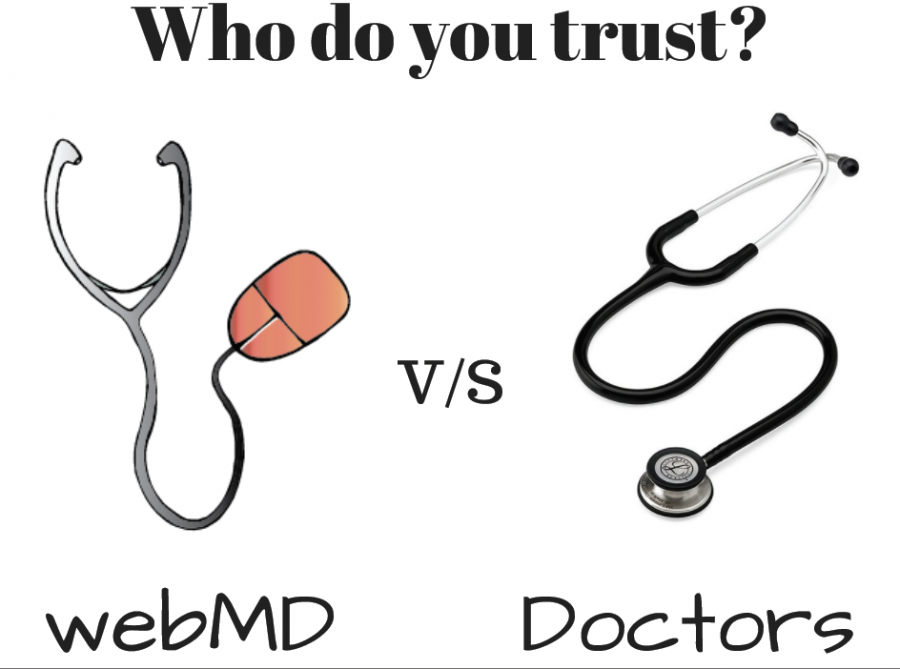WebMD vs real MD: Students self-diagnose before trusting doctors
April 23, 2018
As a student, you’ve had a bad cough for a few days and finally admit to yourself you’re sick. Doctors are a far reach away so you do the next best thing- self-diagnosis over the internet.
University students all over the country are quickly turning to self-diagnosis websites more often than usual for a variety of reasons. Students like junior toxicology major Trey Skains trusts websites like WebMD for a quick diagnosis before, or at times, even in place of going to see a real doctor.
“I’ll treat it with what I think will work. Like if I have a cold, I’ll take cold medicine, etc. If I do not get better after a week or so then I’ll go to the doctor. I just don’t see the point in going to the doctor if it’s not necessarily needed,” Skains said.
Skains does add that if he feels it’s something more serious than a minor cold or allergies, he will go to a doctor.
Money appears to be the biggest reason the use of self-diagnosis websites has risen, especially in the United States where healthcare isn’t free for all.
Here at ULM, students are encouraged to visit the on-campus clinic where the majority of services provided are free of charge.
With many students unaware of the free clinic on campus and low on money, self-diagnosis through websites like WebMD are the only option.
Cassidy Schexnaydre, a senior nursing major, discourages using sites like WebMD for self-diagnosis. She prefers the experience and knowledge of an individual over a computer program.
“The reason doctors’ offices, urgent care clinics and hospitals are so valuable is because the health care providers have gone through years and years of schooling to be able to accurately diagnose and treat you. Don’t rely on websites that have never laid eyes on you to diagnose you,” Schexnaydre said.
Caitlin Willson a senior nursing major agrees with Schexnaydre’s statement and adds even when you get a diagnosis, be it from a website or doctor, you shouldn’t be afraid to get a second or third opinion if you don’t feel like you’re being fully understood. Wilson isn’t totally against online medical research and sees it as a benefit in today’s world.
“The internet is such a great place to learn about healthcare and understand your own anatomy and physiology but only from certified, evidence-based, trusted and medically valid sites,” Willson said.
In the end, online healthcare is here to stay. Companies like Fitbit and Apple are periodically coming out with new products like smartwatches that can track your heart pressure. Nobody denies this, but a major concern to health professionals is the misuse or misunderstanding of information given to people through these services.
Students at ULM use a mix of both doctors and self-diagnosis websites when faced with a health concern, according to a poll done by The Hawkeye.



